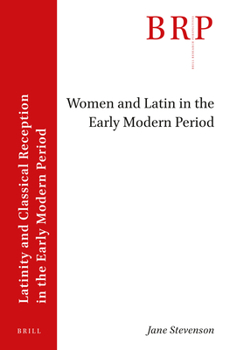Women and Latin in the Early Modern Period
The first early modern women Latinists lived in mid-fourteenth century Italy, and were educated as diplomats. By the fifteenth century, other upper-class women were educated in order to perform as prodigies on behalf of their city. Both strands of education for women spread to other European countries in the course of the sixteenth century: the principal women humanists were either princesses or courtiers. In the seventeenth century Latin lost its importance as a language of diplomacy and was no longer needed at court, but there was still a place for the 'woman prodigy', and a variety of women performed in this way. However, the productions of seventeenth and eighteenth-century women Latinists are more extensive and more varied than those of their predecessors, and include scientific writing and ambitious translations. By the mid-nineteenth century the integration of studious women into the wider academy was well under way.
Format:Paperback
Language:English
ISBN:9004529756
ISBN13:9789004529755
Release Date:September 2022
Publisher:Brill
Length:124 Pages
Weight:0.35 lbs.
Dimensions:0.4" x 5.9" x 9.2"
Related Subjects
HistoryCustomer Reviews
0 rating





